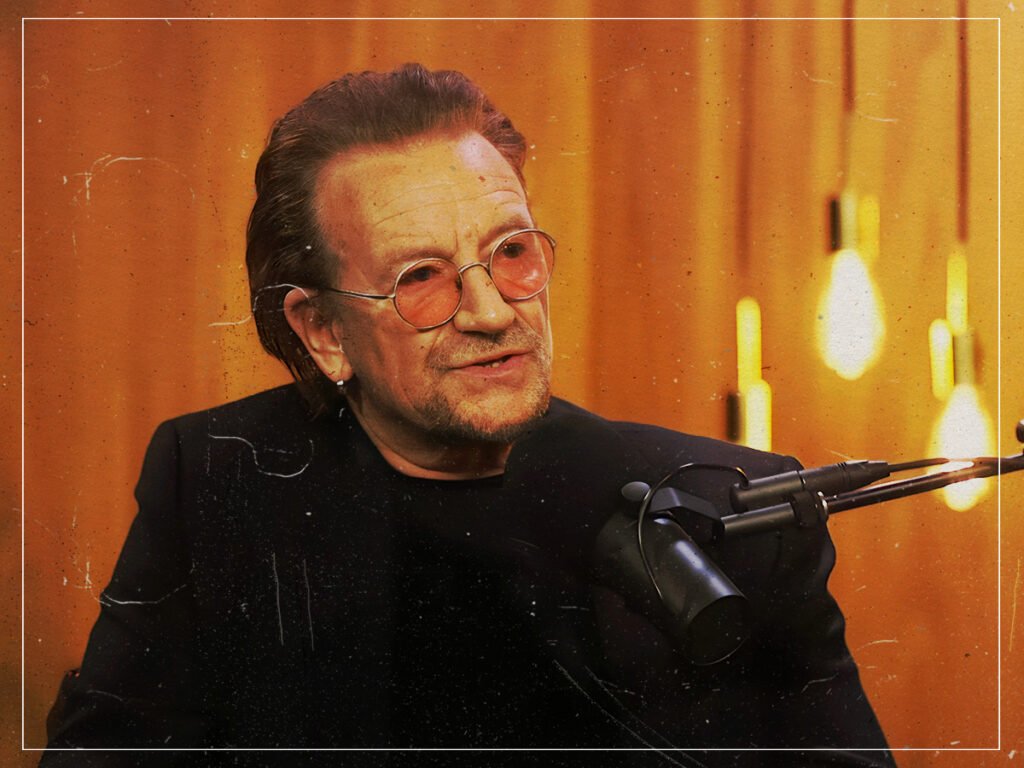
(Credits: Far Out / YouTube Still)
The mark of any good frontman is being able to hold the audience in the palm of their hands. No one goes to see any group to see the person at the front look at their shoes the entire time, and everyone from Freddie Mercury to Robert Plant has had a particular gift when it comes to pushing and pulling an audience to the point where they are considered gods among men. But when talking about Bono, many audiences think he uses his gift of gab both for good and evil whenever he takes the stage.
That’s not to say Bono isn’t allowed to say what he feels. He has always championed the causes that he believes, and anyone who grumbles day and night about how people like him should keep politics out of music clearly hasn’t been paying attention to what he’s been doing ever since the beginning. U2 was born out of the punk tradition, and they were going to stand up for what they believed in at every opportunity.
Did it always work? No. It only takes one viewing of Rattle and Hum to see that in action. There are many points in the film where Bono’s calls for change sound genuinely impassioned, but there are a handful of times where it’s clear that there are some long faces in the audience and that everyone’s looking forward to when the song kicks back in.
That didn’t stop Bono from wanting to champion his beliefs, though, and he couldn’t have asked for a better place than Live Aid to air his feelings. The entire day was about raising money for those who couldn’t help themselves, and when the group launched into ‘Bad’, Bono walked away from that show as one of the few people onstage that decade with a mullet that didn’t manage to look ridiculous.
But the real superstar musician behind everything was Bob Geldof. There were many people who tried their hand at doing some good for the community, but Geldof had an innate way of talking about the greater problems with the world that made everything much easier to understand, which is probably why songs like ‘Do They Know It’s Christmas’ worked so well when he first began his charitable crusade.
And despite all of the money Bono raised during his lifetime, he admitted that Geldof’s version of philanthropy puts him to shame, saying, “The truth of it is that Bob Geldof opened the door and I walked through. He showed me, as an Irish person, that ideas get more authority the better they are described. He was as gifted with words as any virtuoso offering their talents to the main stage. He is Miles Davis, Eric Clapton, Ginger Baker, and that is just in conversation. His is a genius of vocabulary and communication.”
Granted, it’s understandable why that inspiration can be both a blessing and a curse for someone like Bono. It’s nice to see someone take a stand and try to make the world a better place, but there’s a good chance that adventurousness is what made the U2 frontman believe it was a good idea to make an album like Songs of Innocence available on everyone’s iPhone without asking.
If there’s one lesson that everyone can learn from how Geldof operates, though, it’s about leading with the heart before anything else. A lot of what rock and roll is all about comes from rage, and while Bono does have his fair share of angry songs, some moments can be a lot more genuine if he has some of his soul behind it.
Related Topics

